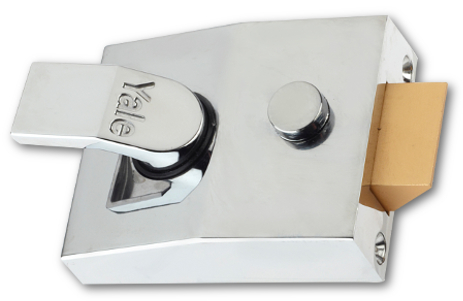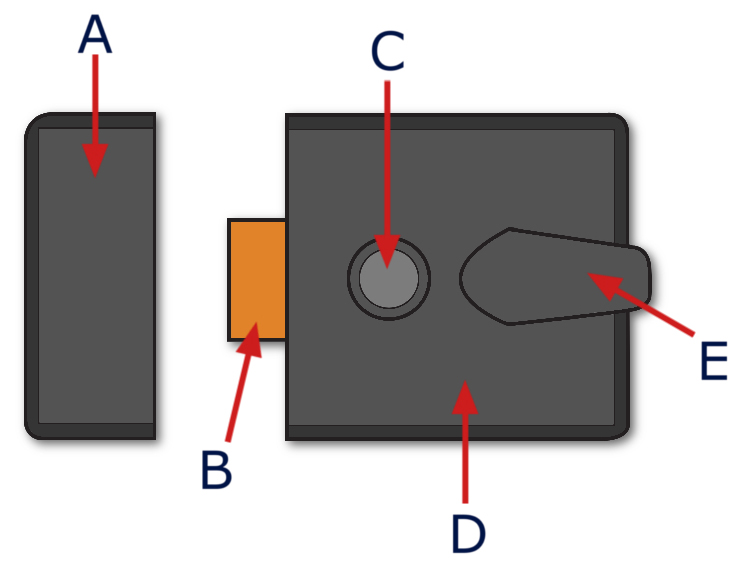How To Guide - Nightlatches
Keep your home safe and secure with a nightlatch
Nightlatches are a popular choice for wooden doors as they require a key to unlock from the outside but can be deadlocked from the inside, often by simply sliding a snib or turning a handle.
Our helpful Nightlatch guides will make sure you get the right Nightlatch for your home.
Can't find an answer to your Nightlatch problem? Why not get in touch, we're more than happy to answer any questions you may have.
The Range
Click Here to view the different options of nightlatches we have available for same day despatch.
Nightlatch Terminology
|
 |
Nightlatch Maintenance
Nighlatches are designed to be very low maintenance and will usually give you many years of care free service however over time a build up of dust and dirt can start to have a detrimental effect on the internal locking mechanisms or the internal levers can start to wear out.
You should not used a standard liquid based lubricant such as WD40, the wet oil mixes with the dust and clogs the mechanism up, if lubricant is required than a specialist dry graphite based products or a Teflon based spray such as Interfoln. As nightlatches are quite complex and difficult to re-assemble it is not recommended to open them up, with the door open simply depress the latch and with a straw nozzle, spray the lubricant inside and then work the mechanism several times to dispurse.
Nightlatch Selection
Choosing the right nightlatch for your application is of paramount importance, there are many factors to consider however below are the main points.
1) Fit For Purpose
- There are some basic questions to answer as to which nightlatch you choose.
- Is the frame wide enought for a nightlatch with a 60mm backset?
- Does you need to order the cylnder or will just a replacment nighlatch case suffice?
- Does it need to fit the hole in the door that has already been prepared (especially important for lock replacement)?
2) Security Level
- When looking for a nightlatch you need to consider how well it needs to stand up to types of attack.
- If you have the best nightlatch money can buy there will be virtually no security benefit if it is fitted on a flimsy door or frame, security is only as good as its weakest component and so the whole solution needs to be considered.
- If it is fitted on an external wooden door either the nightlatch or the mortice lock it is fitted in conjunction with will have to be British Standard Approved.
- Do you need a deadlocking snib, i.e. when the door is closed the latch is automatically deadlocked to avoid the lock being "slipped" with an item such as a credit card.
- Often the nightlatch is secure however the frame or hinges are vulnerable, if you are unsure it may be worth investigating hinge bolts and door frame re-inforcers.
